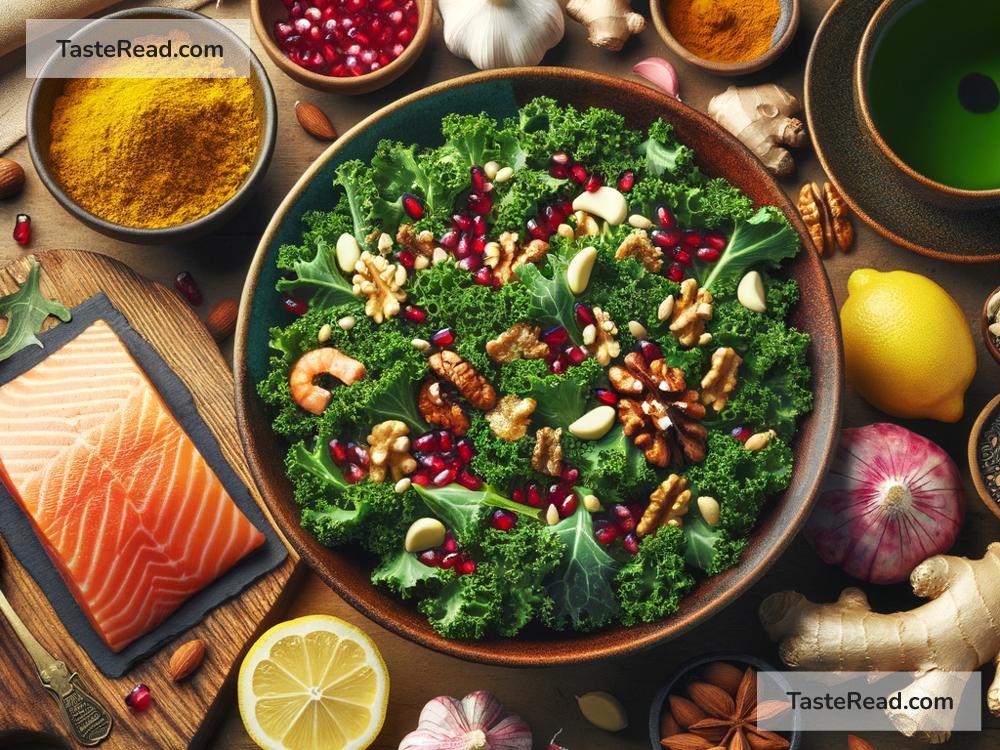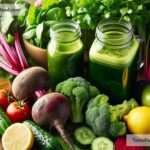Foods That Promote Blood Viscosity Balance
Blood viscosity refers to how thick or thin your blood is and how easily it flows through your veins and arteries. Maintaining an optimal blood viscosity balance is crucial for good health. If your blood is too thick, it can lead to increased risks of clotting, stroke, or heart disease. On the other hand, if your blood is too thin, you might face excessive bleeding issues. Balancing blood viscosity is key to keeping your circulatory system running smoothly, and the foods you eat can play an important role in this process.
In this blog, we’ll explore simple and natural foods that can help promote blood viscosity balance.
Why Blood Viscosity Matters
Your blood is responsible for transporting oxygen, nutrients, and waste throughout your body. Its thickness impacts how efficient this process can be. Factors such as dehydration, poor diet, stress, and underlying medical conditions can influence your blood viscosity. While medications or medical interventions are sometimes necessary, the foods you eat can also contribute to maintaining healthy, balanced blood consistency.
By choosing the right foods, you can improve circulation, prevent complications like blood clots, and support overall cardiovascular health. Let’s look at some foods that promote this balance.
1. Fatty Fish – Rich in Omega-3 Fatty Acids
Fatty fish, such as salmon, mackerel, sardines, and tuna, are excellent sources of omega-3 fatty acids. These healthy fats have anti-inflammatory properties and help improve blood flow. Omega-3s can reduce the risk of blood clots by lowering platelet aggregation — the process by which blood cells clump together to form clots. Omega-3 fatty acids also help thin the blood slightly, ensuring it flows smoothly through your vessels.
If you’re not a fan of fish, you can get omega-3s from plant-based sources like chia seeds, flaxseeds, or walnuts.
2. Garlic – A Natural Blood Viscosity Balancer
Garlic is well-known for its heart-healthy benefits. It contains a compound called allicin, which helps improve circulation and prevents blood from becoming too thick. Garlic can reduce platelet stickiness, making clots less likely to form, and it also works to lower blood pressure.
Adding fresh garlic to your meals is an easy and delicious way to promote blood viscosity balance. If raw garlic is too strong for you, try roasting it to soften its flavor.
3. Leafy Green Vegetables – Rich in Vitamin K
Leafy greens like spinach, kale, and broccoli are packed with vitamin K. While vitamin K is often associated with blood clotting, it plays a vital role in ensuring your blood maintains the right balance between clotting and thinning.
However, it’s important to note that if you’re on blood-thinning medications like warfarin, you should consult your doctor before consuming large amounts of vitamin K-rich foods. Otherwise, these veggies can provide essential nutrients to support healthy blood flow.
4. Berries – Loaded With Antioxidants
Berries such as blueberries, strawberries, raspberries, and blackberries are rich in antioxidants, especially flavonoids. These antioxidants help reduce inflammation in blood vessels and prevent the buildup of plaque. By promoting better circulation, berries contribute to maintaining optimal blood viscosity.
Berries are a versatile food that can be enjoyed as snacks, added to smoothies, or sprinkled over yogurt or oatmeal. Plus, they’re delicious, making it easy to incorporate them into your diet!
5. Nuts and Seeds – Boost Healthy Fats and Vitamin E
Nuts like almonds, walnuts, and pistachios, as well as seeds like flaxseeds and sunflower seeds, are excellent sources of healthy fats, Vitamin E, and omega-3s. These nutrients help regulate cholesterol levels, prevent inflammation, and promote proper blood flow — all of which contribute to balanced blood viscosity.
Opt for unsalted nuts and seeds, as excess sodium can increase blood pressure and counteract the benefits.
6. Ginger – Nature’s Anti-Clotting Spice
Ginger is a popular spice with anti-inflammatory properties that can improve circulation. It helps reduce blood clotting by acting as a natural antiplatelet agent. Ginger contains compounds called gingerols that support healthy blood flow and prevent excessive thickening.
You can incorporate ginger into teas, stir-fries, or soups for both flavor and health benefits.
7. Hydration – Drink Plenty of Water
Dehydration is one of the leading causes of thickened blood. When your body lacks sufficient water, your blood loses its optimal fluidity, making it harder for your cardiovascular system to function efficiently.
Drinking plenty of water throughout the day is one of the simplest ways to ensure your blood maintains the right viscosity. Aim for 8 glasses a day, and adjust for factors like exercise or hot weather that increase your need for hydration.
8. Turmeric – A Potent Anti-Inflammatory
Turmeric is a bright yellow spice famed for its active compound, curcumin, which has powerful anti-inflammatory and anti-coagulant properties. Curcumin helps improve circulation and prevents blood from clotting excessively.
Incorporating turmeric into your cooking, or enjoying it as a tea, is a flavorful way to keep your blood viscosity in check.
9. Whole Grains – Promote Circulation and Heart Health
Whole grains like oats, quinoa, brown rice, and whole wheat promote heart health by lowering cholesterol and improving blood flow. Their fiber content reduces inflammation in blood vessels and promotes a healthier balance of blood viscosity.
Swap refined grains like white rice and white bread for whole-grain alternatives to reap these benefits.
Conclusion
Maintaining blood viscosity balance is essential for your overall health and well-being, and the foods you choose can make a big difference. Incorporating fatty fish, garlic, leafy greens, berries, nuts, ginger, turmeric, and whole grains into your diet, along with staying hydrated, can help promote healthy blood flow and keep your cardiovascular system functioning optimally.
Remember, while food plays a vital role, lifestyle factors like regular exercise, adequate sleep, and managing stress are equally important. If you have specific medical conditions or concerns about blood viscosity, consult your doctor before making major dietary changes.
By focusing on nutrient-rich, natural foods and staying mindful of your health, you can ensure your blood stays flowing smoothly — just like it should.


